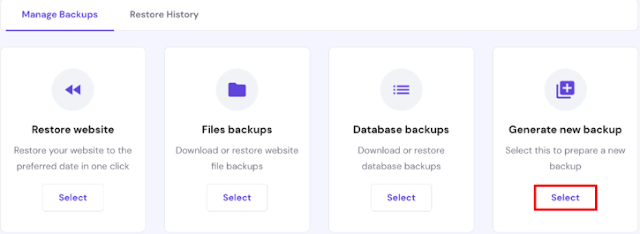- Get link
- X
- Other Apps
- Get link
- X
- Other Apps
Table of Contents
Article: Hackers Target 15 Million WordPress Sites with Cookie Consent Plugin Exploit
In today's digital environment, website security is
critical. With the growing amount of cyber threats, website owners must be
aware and take aggressive actions to safeguard their online assets. Recently, a
concerning security exploit has come to light, involving the targeting of
approximately 15 million WordPress sites through a vulnerability in a popular
cookie consent plugin. We will examine the specifics of this attack, and its
ramifications, and offer insightful tips for safeguarding your WordPress
website in this post.
Introduction
Website owners must guarantee their platforms comply with
the highest security requirements in an era where digital privacy and data
protection are at the forefront. Unfortunately, hackers are constantly evolving
their methods, seeking vulnerabilities to exploit. One such vulnerability
revolves around a widely used cookie consent plugin employed by millions of
WordPress sites, designed to fulfill General Data Protection Regulation (GDPR)
requirements.
Understanding the WordPress Cookie Consent Plugin
Before we explore the recent exploit, let's take a moment to
understand the purpose and functionality of the WordPress cookie consent
plugin. This plugin enables website owners to obtain user consent for the usage
of cookies, ensuring compliance with privacy regulations such as GDPR. Cookies
are essential for various website functionalities, but their usage must be
transparent and user-approved.
The Exploitation of 15 Million WordPress Sites
Regrettably, cybercriminals have identified a security flaw
within the cookie consent plugin, leading to the exploitation of an estimated
15 million WordPress sites. These hackers employ sophisticated techniques to
identify vulnerable sites and inject malicious code through the plugin, gaining
unauthorized access to sensitive information and potentially compromising user
privacy.
Vulnerabilities in the Cookie Consent Plugin
The cookie consent plugin exploit highlights the existence
of significant vulnerabilities in the security framework of popular WordPress
plugins. In this case, hackers leverage flaws within the plugin's code to
execute their malicious activities. The consequences for affected sites can be
severe, including data breaches, unauthorized access, and potential legal
ramifications.
The Impact on Website Security and User Privacy
The exploitation of the cookie consent plugin has far-reaching implications for website security and user privacy. Website owners risk losing their reputation, losing client trust, and incurring financial penalties. Furthermore, individuals who connect with hacked sites risk having their personal information stolen or used in fraudulent operations. To address these concerns, website owners need to prioritize website security and take proactive measures to safeguard their platforms.
Steps to Secure Your WordPress Website
Consider applying the following security steps to reduce the possibility of falling victim to similar exploits:
Maintain the latest version of WordPress:
Update WordPress
core, themes, and plugins regularly to guarantee you have the most recent
security fixes.
Choose reputable plugins:
Verify the reputation and
credibility of any plugins before installation, and ensure they are regularly
maintained and updated.
Implement strong passwords:
Use complex and unique passwords
for all user accounts, including the administrator account.
Enable two-factor authentication:
Increase security by
forcing users to give an additional form of verification upon login.
Use a reputable security plugin:
Install a trusted security
plugin that offers features such as malware scanning, firewall protection, and
login protection.
Back up your website regularly:
Create automated backups of
your website files and databases to facilitate easy restoration in case of a
security breach.
Monitor website activity:
Regularly review your website logs
and keep an eye out for any suspicious activities or unauthorized access
attempts.
Secure your hosting environment:
Choose a reliable hosting
provider that prioritizes security and offers robust server-level protection.
By implementing these measures, you significantly reduce the
risk of falling victim to security exploits and enhance the overall protection
of your WordPress website.
Responding to a Security Breach
Despite the greatest attempts, a security breach is always
possible. If your WordPress site is compromised, you must act quickly and
efficiently. Follow these steps:
Isolate the affected site: Immediately take your compromised
site offline to prevent further unauthorized access.
Scan for malware: Employ reputable security tools to scan
your website files and databases for any malicious code or files.
Notify users and stakeholders: Inform your users about the
security breach and provide instructions on the necessary actions they should
take to protect their information.
Implement security patches and updates: Apply the necessary
security patches and updates to your WordPress installation and plugins.
Conduct a post-breach analysis: Analyze the security breach
to identify the vulnerabilities exploited and implement measures to prevent
future incidents.
Remember that quick action is critical in mitigating the
effects of a security breach and preserving your website and user data.
The Future of Website Security
Cybercriminals' techniques evolve in tandem with
technological advancement. The security landscape will continue to evolve, and
website owners must stay informed about emerging trends and technologies.
Concepts such as artificial intelligence (AI), machine learning, and behavior
analysis offer promising avenues for enhanced website security. By leveraging
these technologies, we can better detect and mitigate potential threats,
safeguarding our online presence.
Conclusion
In conclusion, the recent exploit targeting 15 million
WordPress sites through a vulnerability in a popular cookie consent plugin
serves as a stark reminder of the importance of website security. Website
owners must prioritize security measures to protect their platforms, user
privacy, and sensitive information. By implementing proactive security
practices and staying informed about evolving threats, we can navigate the
digital landscape with confidence.
FAQs
How can I check if my WordPress site is affected by the cookie consent plugin exploit?
Monitor your website's activity logs for any
strange behavior to see whether your site is impacted. Additionally, you can
utilize security plugins or consult with a professional to conduct a security
audit.
Is it enough to update the cookie consent plugin to protect my site?
While updating the plugin is essential, it may not be sufficient on
its own. It is crucial to follow comprehensive security practices, including
updating WordPress core, themes, and other plugins, implementing strong
passwords, and utilizing additional security measures.
Can I recover any lost data or information after a security breach?
The recovery process depends on the extent of the breach and the backup
measures you have in place. Regularly backing up your website is essential to
facilitate data recovery in the event of a breach.
Are there any alternative plugins available for cookie consent?
Yes, there are several alternative plugins available that provide
cookie consent functionality. Ensure you choose a reputable and regularly
updated plugin with positive user reviews.
Should I hire a professional to secure my WordPress site?
Hiring a professional to assess and secure your WordPress site
can provide an added layer of expertise and ensure comprehensive security
measures are in place. It is particularly beneficial if you lack technical
knowledge or have a high-value website with sensitive data.
Website hacking
Website Protection
Website vulnerability
WordPress plugin vulnerabilities
WordPress security
- Get link
- X
- Other Apps











Comments
Post a Comment